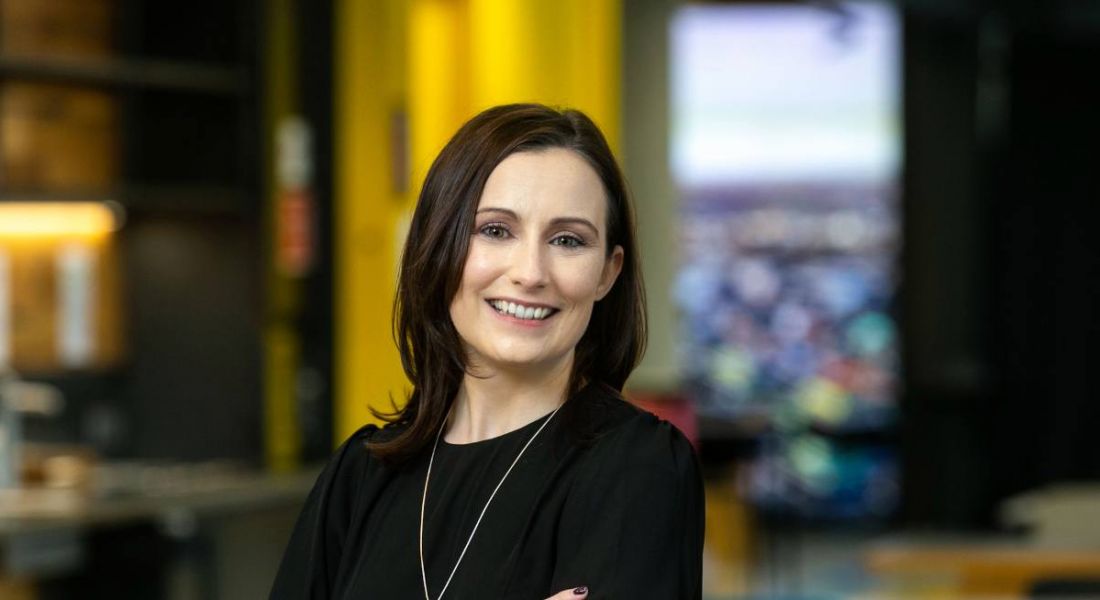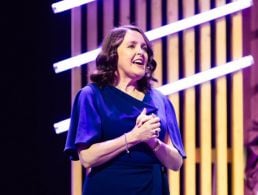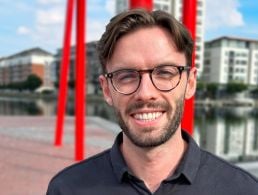Accenture Ireland’s head of HR discusses the biggest trends set to shake up the future of work, from the metaverse to a post-pandemic working life.
Aisling Campbell is the head of HR at Accenture Ireland. She has worked at the company since 2015 and has held several HR roles in that time, including HR manager for Accenture’s global R&D and innovation centre, The Dock, and HR lead for Accenture’s operations business.
“Human behaviour has always fascinated me and after graduating with a degree in psychology, I started working in customer insights and research, which I loved,” she told SiliconRepublic.com.
“Then in 2011, while working at O2, I started an MSc in occupational psychology and made a career move to HR at the same time, focusing this time on employee insights and research. That was my first role in HR and I was hooked!”
‘HR has a pivotal role to play in so many areas across a business’
– AISLING CAMPBELL
What are the biggest HR challenges facing your company right now?
Like every company, attracting, retaining, growing and developing talent is a key challenge. Listening closely to our people, their needs and aspirations, both professionally and personally, is one way we try to tackle this challenge. We’re also fortunate to have a wide global network across Accenture where we can learn from best practice.
Another challenge, like many organisations, is navigating the future of work. Post-pandemic, people want to design their work life in new ways. This brings a lot of new opportunities, and for those of us working in HR, the focus is on listening to our people, understanding their priorities and finding ways to enhance the employee experience.
Organisations can only benefit from this, as it enables access to a broader and more diverse talent pool than ever before, and it enables employees to create a lifestyle where they can thrive personally and professionally.
What are some of the main responsibilities of your own role?
My role is really varied, and I am genuinely excited to come to work each day. My responsibilities include working very closely with our leadership team in Ireland, listening and responding to the needs of our workforce of over 5,500 people in Ireland, and partnering with our head of inclusion and diversity to ensure inclusion and diversity is at the centre of everything we do.
In addition, I focus on growing our own HR talent so that we can support the business now and into the future. We have a very talented recruitment team who are passionate about the candidate experience. They attract and recruit our early talent and experienced hires and are always looking for new ways to ensure we attract the best talent.
What HR technology trends and opportunities are you capitalising on?
The metaverse has huge potential to transform the way we all work and is an area we’ve been really investing in. We believe that, over time, it will reinvent how people work, their workforce experiences and the way they learn.
Accenture has built a corporate metaverse, the Nth Floor, with the aim of onboarding new employees in a new and exciting way, while also increasing digital collaboration between our 710,000-plus employees globally.
New joiners create avatars and access One Accenture Park, a virtual reality orientation environment, during their first few days. We’ve created digital twins of several our offices, as well as a variety of virtual worlds, collaboration and learning spaces and encourage employees to use them for virtual coffee breaks, training or even all-hands meetings.
This technology is exciting and enables our employees to meet, learn and collaborate in new ways, while also enabling us to better understand how these immersive collaborative experiences can benefit our clients – whether that is through building new products and services, transforming how they work, or by changing the nature of how products are marketed, distributed and experienced.
What has been the biggest culture change within your organisation in the last five years?
It goes without saying that navigating the pandemic has been the biggest culture change for every organisation in the last few years. It’s brought about unprecedented change in how we work with each other and with our clients.
At a time when people are fundamentally rethinking their relationship with work and against the backdrop of a hugely competitive talent market, organisational culture takes on a new significance.
For me, culture isn’t anchored to designated places, but it’s found in relationships and experiences. I think this is where companies should focus their efforts – designing work around all types of workers and equipping employees with the resources they need to support them in a hybrid world.
What key strategies, tools and resources are you using to prepare for the future of work?
We’re taking what we’ve learnt over the past two years, when almost all our people worked remotely, to imagine new ways of working and to shape the future of work in our organisation.
There is no one-size-fits-all solution, so we’re focusing on empowering our leaders across the business to make decisions on flexible working models, so that we can cater to the needs of our people while delivering for our clients in the best way.
As a global business, we have always used platforms such as Microsoft Teams to work remotely around the world. Modern technology has enabled us to scale this process, not only through practical platforms like the metaverse, but also through implementing tools that support our people’s wellbeing so that they can be at their best.
This has included the roll-out of tools such as Calm, a leading app for meditation and sleep management, and Wysa, an AI-enabled app for mental health and emotional wellness.
What is the one thing you think HR teams should either stop doing, or start doing differently?
It’s really important that HR teams articulate the value they bring to an organisation. HR is so much more than a support function and HR teams are influencers and shapers of employee experience.
HR has a pivotal role to play in so many areas across a business and teams can drive real change in creating an inclusive environment that supports and promotes physical, mental and emotional health.
10 things you need to know direct to your inbox every weekday. Sign up for the Daily Brief, Silicon Republic’s digest of essential sci-tech news.




